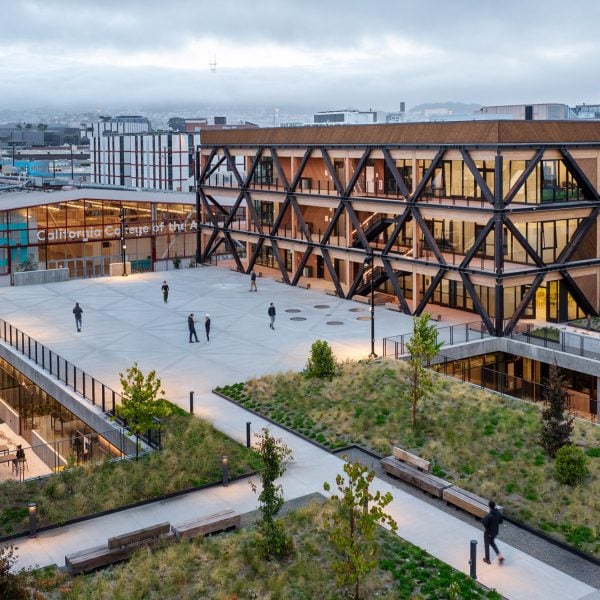Architecture studio Studio Gang has completed an expansive extension at the California College of the Arts San Francisco campus, which includes exposed bracing and a concrete terrace.
The 82,305 square foot (7,646 square metre) addition extends outwards from the college’s main academic building and consists of buildings and courtyards encased in a large, elevated concrete terrace.
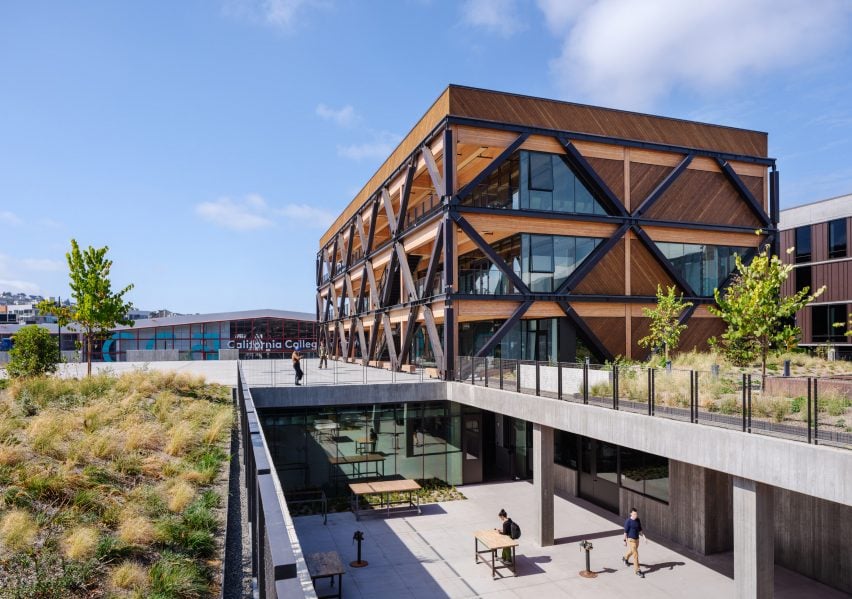
This terrace acts as a ceiling to the building’s ground-level program while providing an expansive outdoor space for three mass-timber “pavilions” that extend upwards at the sides of the plan, one of which remains unbuilt.
Two “maker yards” were “carved” out of the terrace and reach down towards ground-level, where the entrance to the neighbouring building also lies.
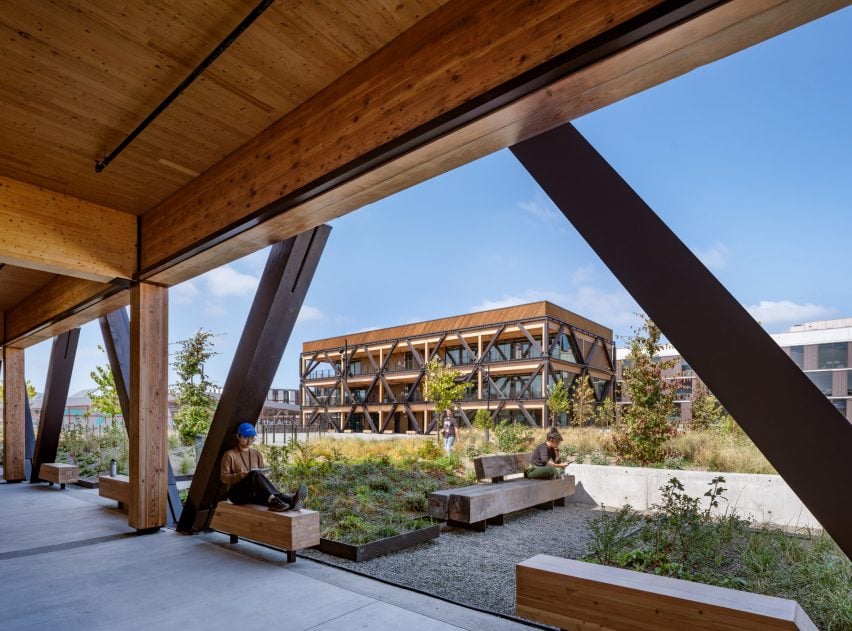
The complex hosts a variety of art-making classrooms and studios for the California College of the Arts (CCA) campus, such as spaces for finishing and sandblasting, lithography and etching and a metal shop.
Its many studios and spaces are meant to create a “dynamic environment”, while incorporating green spaces for the campus.
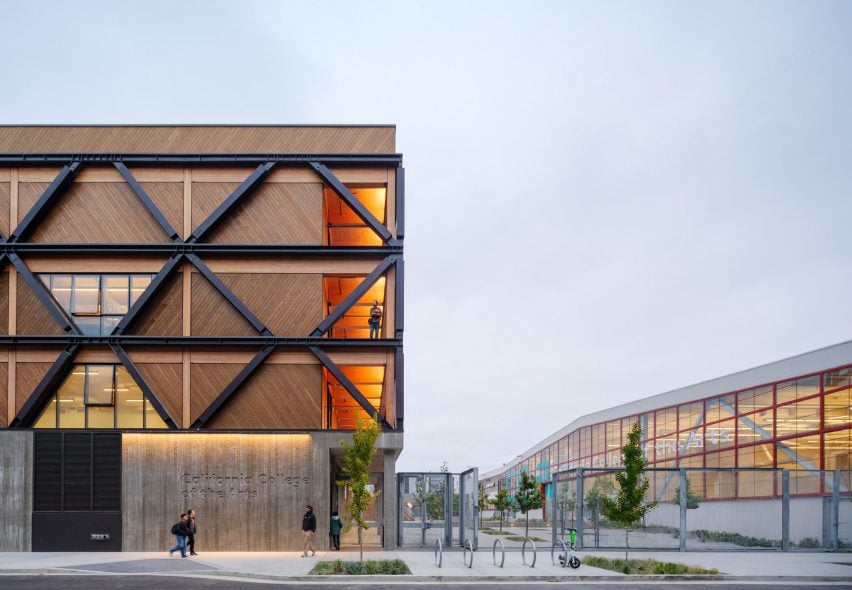
“The design intends to create a dynamic environment for art and design education, while also inspiring new forms of making through unexpected interactions between disciplines,” said Studio Gang founding partner Jeanne Gang.
The building is square in form, and in plan, organised around the two rectangular courtyards, which are offset from each other at the complex’s centre.
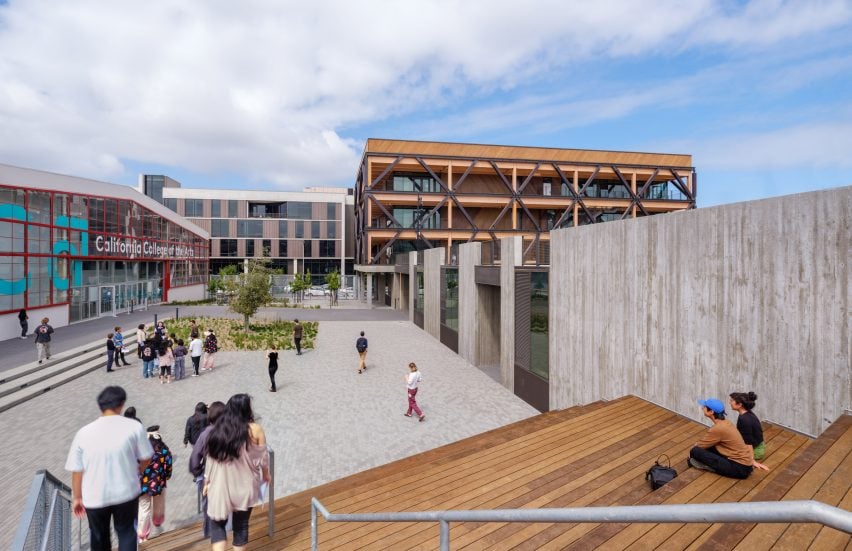
Three, multi-storey mass-timber buildings – the Irwin Pavilion, Hooper Pavilion and the future Seventh Street Pavilion – are tucked around the terrace’s perimeter and extend upwards through its concrete deck.
The mass-timber buildings showcase an exposed, “eccentric” black-toned bracing system, which encircles the buildings in a cage-like skin.
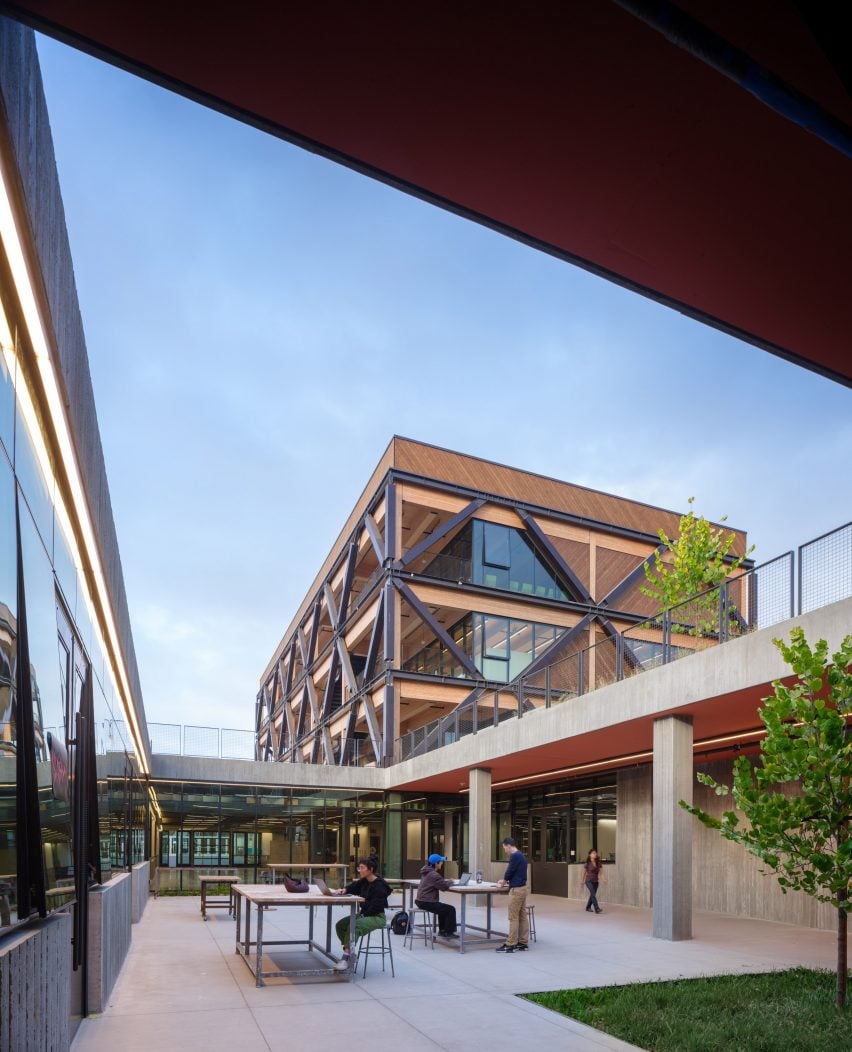
“Their structures, which are among the first exposed mass timber structures in California and include a one-of-a-kind eccentric braced frame system, allow their natural materiality and lateral and gravity loads to be visible,” said the studio.
Behind the frame, the buildings are clad in diagonal wood panels and are fronted with loggias, which face the interior of the expansion.
At ground level, below the terrace, the courtyard and interstitial spaces were clad in glass, and an exposed staircase across from campus’s main building leads to the upper deck.
Rectangular green spaces are distributed across the top of the terrace, while small gardens populate the interior courtyards.
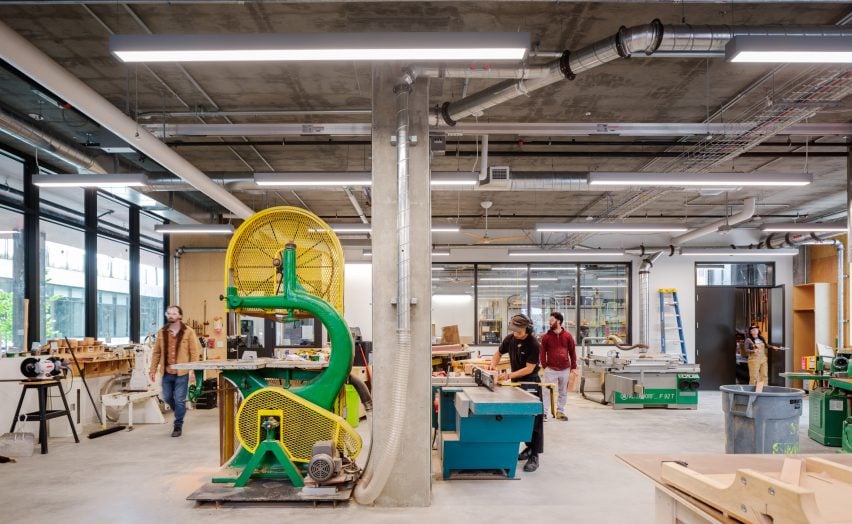
Sustainable strategies were incorporated into the design, such as “self-shading façades and night-flush ventilation” according to the studio, while infrastructure is in place for a future “net-positive” system.
The mass-timber structure also reduces the building’s impact to almost half of a “typical” building, according to the studio.
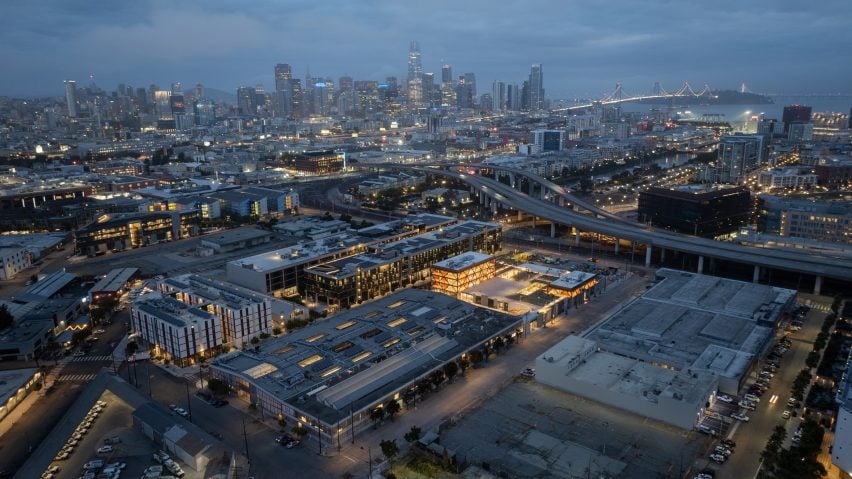
“The hybrid mass timber structure and minimal finishes reduce the building’s embodied carbon footprint by almost half that of a typical baseline building,” said the studio.
“I’m excited to see how our addition to CCA’s campus shapes the future of art and design, and adds to San Francisco’s storied creative community,” added Gang.
Other recent projects by Studio Gang include a residential tower in San Francisco’s Mission Rock neighborhood and a hotel in Denver with a facade informed by tree bark.
The photography is by Jason O’Rear
Project credits:
Owner’s representative: Dovetail Construction Project Management,
Associate architect: TEF Design
Sustainability consultant: Atelier Ten
Structural engineering and acoustics engineer: Arup
MEP/FP engineer: MEYERS+
Landscape architect: Surface Design Inc.
Civil engineer: Lotus Water,
Lighting designer: Pritchard Peck,
Wayfinding and signage: Public design
Code, fire, and life safety consultant: Coffman Engineers
Thermal and waterproofing consultant: Thornton Tomasett
Dry utility consultant: Urban Design Consulting Engineers
General contractor: Hathaway Dinwiddie Construction Company

